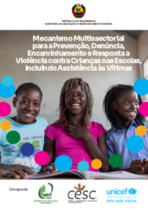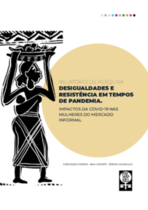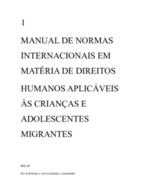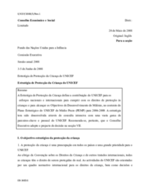Mecanismo Multissectorial para a Prevenção, Denúncia, Encaminhamento e Resposta a Violência contra Crianças nas Escolas, Incluindo Assistência às Vítimas
A Constituição da República de Moçambique consagra a educação como um direito e dever fundamental de cada criança, que deve ser oferecida num ambiente seguro, propiciando a aprendizagem.






